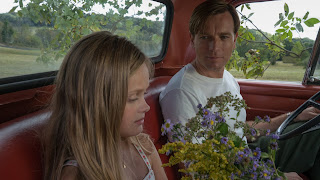For decades in the entertainment industry, there had been an unwritten rule concerning the adaptation of books into movies –
Books written in commercial genres end up making the best movies. Books that are considered “literature,” often get adapted into mediocre movies.
I raise this issue because of the critical and box-office success of the “Fantastic Beasts and Where to Find Them,” a movie from the screenplay and work of J.K. Rowling. There are few people who would disagree that Rowling’s artistic talent and success are certainly on par with Roald Dahl, now considered a literary giant even though his most influential work was in children’s books.
Whether the Harry Potter books should be considered “literature” or fine examples of wonderfully written books for main-stream audiences might still be debatable. However, the original
publication of the Harry Potter books (the first one came out in 1997) led to a transcendent change in our pop culture - a new generation of young people, tempted to follow the siren of digital entertainment, instead discovered the passion of reading books.
There was a lot of skepticism about whether it was truly possible to capture on film the dense, unique universe J.K. Rowling had created on the page. As it turns out, the filmmakers involved with the Potter movie franchise mostly got it right. But does the past success of the Potter books and the more recent success of “Beasts” mean that Hollywood has gotten better at handling well written books that are tough to translate to the screen? Or is it that the Potter books don’t necessarily qualify as “literature” in the traditional sense?
Let’s consider two critically acclaimed books, both recognized as “great literature,” by a majority of critics and readers. “American Pastoral” is perhaps one of the greatest books written in the last two decades, and one of the many great books that author Phillip Roth has written over his long and distinguished career. The novel was recently adapted into a theatrical movie, which unfortunately falls short of capturing the quality of the source material. Written and directed by the wonderfully talented actor, Ewan McGregor, the adaptation fails in the way that many adaptations often fail, neither capturing the spirit and essence of the source material, while at the same time, failing to establish its own raison d'être as a film project.
In this Neo-Golden age of television, we might see TV as the natural place to host adaptations of challenging literary works. That's not always the case. I turn my attention to the adaptation of Jonathan Franzen’s brilliant book, "The Corrections,” adapted recently as a potential series to air on HBO.
Even though there were many talented creative people involved (including Producer Scott Rudin) in the development and shooting of the pilot episode for the project, HBO ended up not picking up the project as a series.
Why?
In an interview (with Kurt Anderson) about the failed HBO project, Noah Baumbach, the screenwriter (along with the novelist, Franzen)/and director of the pilot, attempted to share some insight into what happened —
“The real reason I think we didn’t go forward with (the project as a series) was that it was too complex, and it was really too expensive for the kind of show it was going to be.”Baumbach goes on in the interview to define how adapting any great literary work is difficult, whether it is as a movie or a TV series - “I left (the failure of the TV pilot to get picked up by HBO) with a real appreciation for what is distinctly television and what is distinctly movies. Sometimes that gets conflated because we’re all talking about how we’re in a golden age of TV and TV is where more interesting stuff is going on. But I think what gets lost in that sometimes is that it’s really a different medium. For me, the challenge of looking at something over a long period of time, that was ongoing and had no end, where you’re just re-generating story for every episode.” Noah’s comments suggest that any appearance of change in the rules of adaptation (even for TV) is a misnomer.
Perhaps there is a new appreciation for books written by authors like J.K. Rowling, John LeCarre, and Stephen King, all genre writers that have now achieved a higher status when considering their work as “literature.”
But apparently what hasn’t changed is how literary authors and their efforts still challenge adapting their material as a Theatrical or TV series screenplay.







No comments:
Post a Comment